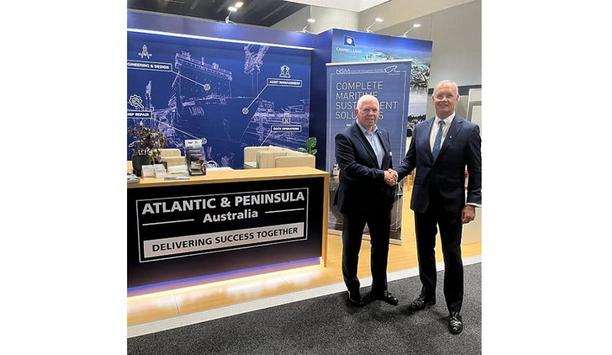Maritime industry can achieve vast majority of its greenhouse gas (GHG) emissions reduction target through digital technologies, according to a major new report into decarbonising shipping.
The maritime industry, which carries over 90 per cent of world trade, accounts for 2.5 per cent of greenhouse gas emissions globally. To hit the target of a 50 per cent reduction in global shipping CO2 emissions by 2050, as set by the International Maritime Organization (IMO), it is estimated that the sector will require investment of US$ 1.9 trillion, of which 85-90 per cent would be needed to build the infrastructure to support alternative future fuels.
The Optimal Route - report on decarbonising shipping
A major new report – The Optimal Route – sponsored by Inmarsat shows that, to meet this objective, work on alternative maritime fuels infrastructure must continue at pace, but the shipping industry could reduce its greenhouse gas emissions by 38 per cent by 2050 through the digitalisation of existing vessels and shipping infrastructure alone.
That is 76 per cent of the decarbonisation effort required by the International Maritime Organization, at approximately 1/10th of the overall estimated cost.
Need to move towards alternative fuel solutions
The goals set by the IMO are ambitious and there is no shortcut or silver bullet to achieving such objectives"
Ben Palmer, the President of Inmarsat Maritime, the world’s renowned provider of mobile satellite communications to the global shipping industry, said “Although a relatively low contributor of CO2 emissions, the maritime industry still carries a heavy responsibility to do its part, in the fight against climate change. The goals set by the IMO are ambitious and there is no shortcut or silver bullet to achieving such objectives.”
He adds, “While alternative fuel solutions are needed to continue to develop at pace, shipping can make considerable and rapid progress towards decarbonisation, by embracing digital technologies. Initially driven by efficiency improvements and cost benefits, digital innovations can start making a major dent in vessel emissions today.”
Digital decarbonisation tools offer high value
The authors of the report, maritime innovation consultancy - Thetius, stated “While they should not be considered in competition with each other, digital decarbonisation tools offer impressive value for money, when compared to measures based on clean energy. They warn the industry that Carriers that do not step up their efforts now, to invest in digital decarbonisation technology and embrace innovation, could find themselves redundant in the rapidly evolving ocean freight markets.”
According to the research report, one of the most fruitful areas for digital decarbonisation is the voyage phase, when ships are at sea and their engines are at their most polluting.
Digital transformation in the area of ship operations
Thetius data indicates that digital transformation in the area of ship operations and management technology is a growing sector, currently valued at US$ 11 billion, with voyage optimisation and fleet monitoring digital platforms returning impressive results already.
Cargill reported CO2 emissions reductions of up to 14.4 per cent, across its tanker fleet
Marine solutions provider - ZeroNorth revealed that its platform had prevented 218,000 tonnes of CO2 from being released to the atmosphere throughout 2021, coinciding with a time when shipping’s emissions as a whole increased by 4.9 per cent.
Additionally, Cargill reported CO2 emissions reductions of up to 14.4 per cent, across its tanker fleet. In the same year, artificial intelligence capability from Deepsea Technologies produced a 12 per cent reduction for cape-size tanker operator - Seanergy Maritime.
Wide environmental benefits of digitalisation
Ben Palmer stated, “The maritime industry is already seeing evidence of the environmental benefits of digitalisation, which is being delivered alongside commercial and operational improvements for ship owners and operators using the same technology and satellite communications infrastructure.”
He adds, “The journey the industry is embarked on is not an easy one but if we want to limit the damage human-driven emissions are doing to our planet, we have no choice. Inmarsat intends to play a central role in facilitating this transformation.”











